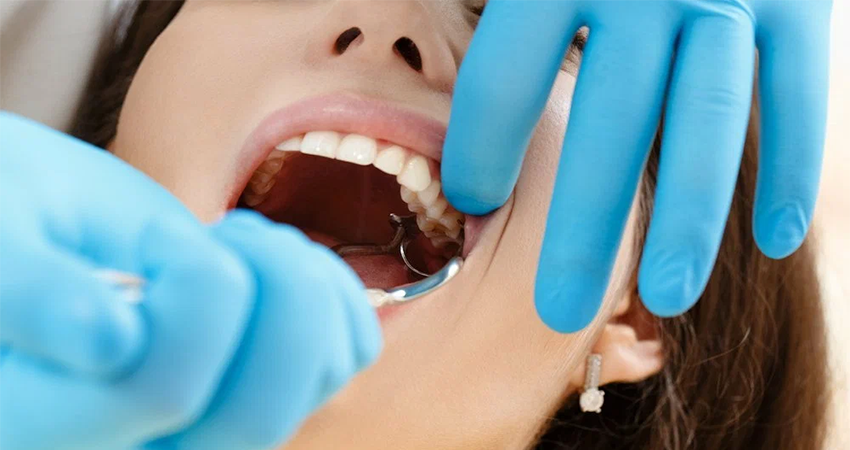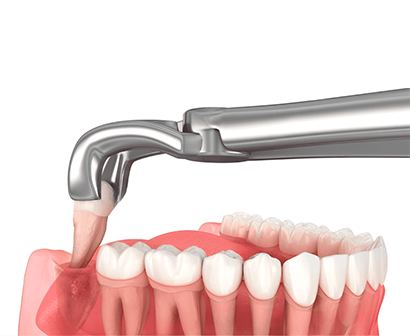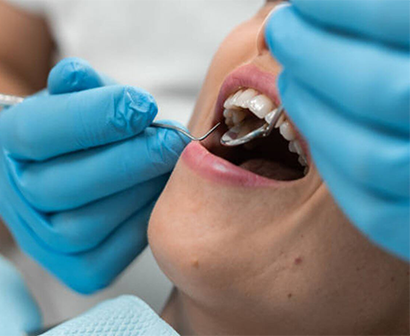Wisdom Tooth Removal

Wisdom Tooth Extraction Johor Bahru
Wisdom tooth extraction is a standard dental procedure, often needed when the third molars, known as wisdom teeth, become problematic. Wisdom teeth usually emerge between the ages of 17 and 25, but if they aren’t monitored or treated when necessary, they can lead to persistent pain, discomfort, and potential complications for your long-term oral health. At Asiaa Dental Clinic, we provide wisdom tooth extractions, including both routine and surgical extractions, to address any potential complications and ensure your comfort during the process.
When wisdom teeth fail to emerge correctly or become impacted, they can lead to infections, damage to nearby teeth, and even cysts or tumors. In some cases, the wisdom teeth may grow at an angle, causing misalignment or damage to the surrounding gums and bone. Our experienced team at Asiaa Dental Clinic uses advanced imaging and diagnostic tools to assess the positioning of your wisdom teeth and determine the best approach for removal. Whether it’s a straightforward extraction or a more complex surgical procedure, we ensure a smooth, stress-free experience to your individual needs.
Why Wisdom Tooth Extraction Is Necessary
The third molars, commonly known as wisdom teeth, emerge at the very back of the mouth and often create challenges due to limited space or improper alignment. When there is not enough room in the jaw to accommodate these teeth, they may become impacted, meaning they do not emerge fully or align correctly. Impacted wisdom teeth can result in pain, infection, and even damage to surrounding teeth. When ignored, problematic wisdom teeth can trigger more serious concerns such as infections, cyst formation, or damage to nearby teeth. Removing them early can safeguard your oral health and support better dental alignment. At our clinic, our expert dentists assess your wisdom teeth and recommend the most appropriate course of action based on your unique needs.
Wisdom tooth extraction is often recommended to prevent or resolve potential dental issues that can arise with the third molars. Here are five reasons why this procedure might be necessary:
-
Prevents Infection: Impacted wisdom teeth can trap food and bacteria, leading to infections or gum disease if not removed.
-
Avoids Damage to Adjacent Teeth: Crowded or misaligned wisdom teeth can push against other teeth, potentially causing tooth decay or damage to surrounding teeth.
-
Reduces Risk of Cysts or Tumors: Impacted wisdom teeth can develop cysts or tumors that could affect the jawbone or nerves, requiring surgical removal.
-
Relieves Pain and Discomfort: When wisdom teeth are partially erupted or impacted, they can cause significant pain, discomfort, and swelling, which extraction can alleviate.
-
Improves Oral Health: Removing problematic wisdom teeth can prevent future dental complications, ensuring better long-term oral health.
Types of Wisdom Tooth Extractions
1. Simple Extraction
A simple extraction is typically performed when the wisdom tooth has fully erupted above the gum line and is visible in the mouth. The procedure is generally simple and is often carried out using local anesthesia to ensure a comfortable experience.The tooth is gently loosened and then removed, minimizing the discomfort during the process. Most patients find that recovery is quick and relatively painless.
2. Surgical Extraction
If a wisdom tooth is impacted, meaning it is trapped beneath the gum line or growing at an angle, a surgical extraction may be necessary. This procedure requires a more detailed approach, where an incision is made in the gum to access the tooth. In some cases, part of the bone surrounding the tooth may need to be removed for better access. Surgical extractions are typically performed under local anesthesia, and sedation may be offered for added comfort. This procedure can be more complex, and patients may require more recovery time.
The Wisdom Tooth Extraction Process
1. Consultation
At your consultation, we’ll evaluate your wisdom teeth with the help of advanced imaging tools like X-rays or 3D scans to determine the best treatment approach. This helps us understand the positioning of the teeth and any potential complications. We will also discuss your symptoms, medical history, and recommend the best treatment option.
2. Planning
After confirming the need for extraction, our dental team will design a treatment plan specifically tailored to your oral health needs and comfort. This plan will include whether local anesthesia or sedation is needed, as well as the type of extraction (simple or surgical) required.
3. The Procedure
To ensure your comfort during the procedure, anesthesia will be administered on the day of your extraction. For simple extractions, the tooth will be loosened and removed carefully. In a surgical extraction, an incision will be made to access the tooth, and it may be necessary to remove some bone around the tooth to extract it.
4. Post-Procedure Care
After the extraction, we provide detailed aftercare instructions to ensure proper healing. These instructions will include how to manage any discomfort, what foods to avoid, and how to care for the surgical site to prevent infection. We may also schedule a follow-up appointment to monitor your healing progress.
Why Choose Asiaa Dental Clinic for Wisdom Tooth Extraction?
At Asiaa Dental Clinic, we prioritize your comfort and safety throughout the wisdom tooth extraction process. Our experienced dental team uses the latest technology and techniques to ensure that your procedure is as painless and efficient as possible.From routine extractions to complex surgical removals, our team is fully prepared to provide safe, precise, and compassionate dental care to your needs. Our clinic is equipped with state-of-the-art facilities to ensure the best outcomes for our patients.
When to Seek Wisdom Tooth Extraction
It is essential to monitor the condition of your wisdom teeth and seek professional advice if you notice any of the following symptoms:
-
Persistent Pain – Ongoing discomfort or swelling around the back of the mouth.
-
Difficulty Chewing – Pain or discomfort when eating.
-
Red or Swollen Gums – Irritation around the gum area near the wisdom tooth.
-
Bad Breath or Unpleasant Taste – Due to an infection caused by impaction or poor oral hygiene.
-
Infection – Noticeable symptoms like gum swelling, redness, or discharge near the affected tooth may indicate an underlying infection.
If you notice any of these symptoms, we recommend seeking a consultation as soon as possible to prevent further complications.
Healing and Aftercare
Proper aftercare is essential for quick healing following a wisdom tooth extraction. Common tips for recovery include:
-
Rest – Take time to rest and avoid strenuous activities for the first few days after your extraction.
-
Pain Management – Pain medications or ice packs may be recommended to reduce swelling and discomfort.
-
Diet – Stick to soft foods and avoid hot, spicy, or hard foods that may irritate the extraction site.
-
Oral Hygiene – Follow our instructions carefully on how to brush and rinse your mouth without disturbing the healing site.
-
Infection – Noticeable symptoms like gum swelling, redness, or discharge near the affected tooth may indicate an underlying infection.
We will guide you through the entire process to ensure you heal quickly and comfortably.


Surgical Tooth Root Extraction: What to Expect
Surgical tooth extraction is a specialized dental procedure in which a dentist or oral surgeon removes a tooth from the jawbone. This procedure may be needed due to various reasons, such as severe tooth decay, advanced gum disease, impaction, or overcrowding. In certain situations, a surgical extraction may be recommended to make room for orthodontic alignment and ensure better treatment outcomes. Below is a breakdown of what you can expect during a surgical tooth extraction:
1. Initial Evaluation and Planning
Prior to the extraction, a thorough assessment is performed to understand your oral health and determine the best approach for the procedure. This includes examining the tooth and surrounding structures with X-rays, to fully assess the situation. The dentist will also review your medical history to ensure the procedure is safe and appropriate for you.
2. Administering Anesthesia
To ensure you remain comfortable during the procedure, the dentist will apply local anesthesia to numb the area around the tooth. For more complex extractions, such as those involving multiple teeth or impacted teeth, general anesthesia may be used to keep the patient relaxed and unconscious throughout the procedure.
3. Incision and Exposure of the Tooth
An incision is carefully made in the gum tissue to gain access to the tooth for removal. In cases where the tooth is embedded deeply in the bone or not fully erupted, a portion of the surrounding bone may need to be removed to fully expose the tooth.
4. Careful Tooth Extraction
After the tooth is exposed, the dentist will carefully use specialized instruments to loosen it from its socket.When the tooth is sufficiently loosened, forceps are used to gently remove it without causing unnecessary damage to the surrounding bone and tissue.
5. Socket Cleaning and Debris Removal
Once the tooth is removed, the dentist will carefully clean the extraction site to eliminate any debris, infection, or damaged tissue. This ensures that the area is prepared for proper healing.
6. Stitching the Site (If Necessary)
Depending on the complexity of the procedure, the dentist may need to stitch the gum tissue to facilitate proper healing. In some cases, dissolvable sutures are used, while in others, sutures may need to be removed at a follow-up appointment.
7. Post-Surgery Care
After the extraction, patients are provided with detailed post-operative care instructions, including tips for managing pain, swelling, and bleeding. Pain medications or antibiotics may be prescribed to reduce discomfort and prevent infection.
8. Follow-Up Appointment
A follow-up appointment will be arranged to ensure the healing process is progressing smoothly. During this visit, the dentist may remove any non-dissolvable sutures and check for signs of complications.
Potential Risks and Complications:
While tooth surgical extraction is a routine procedure, there are a few potential risks, including:
-
Excessive bleeding: It’s important to follow care instructions to minimize this risk.
-
Infection Prevention: Maintaining cleanliness at the extraction site is crucial to avoid potential infections.
-
Damage to nearby teeth: The dentist is careful to avoid damaging nearby structures, but this can happen in complex cases.
-
Nerve Damage: In rare cases, nerves near the extraction site may be affected, leading to temporary or permanent numbness.
Surgical tooth extraction is a safe, well-established procedure with high success rates. With the proper care, patients can expect a smooth recovery process and minimal discomfort. Dentists use advanced techniques and modern anesthesia to ensure the patient remains comfortable and relaxed throughout the procedure.
Book Your Consultation for Tooth Extraction and Surgical Procedures
If you're dealing with pain or discomfort from your wisdom teeth, it's important not to delay treatment.Book a consultation at Asiaa Dental Clinic today to receive a thorough evaluation of your dental health. Our team will assess your situation and recommend the most suitable treatment. With our compassionate care and most advanced technology, we ensure the best possible outcomes for your wisdom tooth extraction in Johor Bahru.
Get in touch with us today to book your consultation and begin your journey to a pain-free, healthier smile!
Our Treatments
Accepted Cards & Wallets








